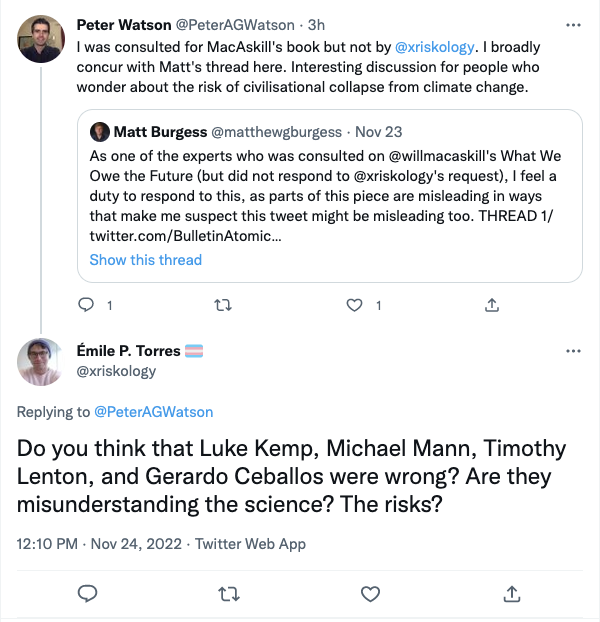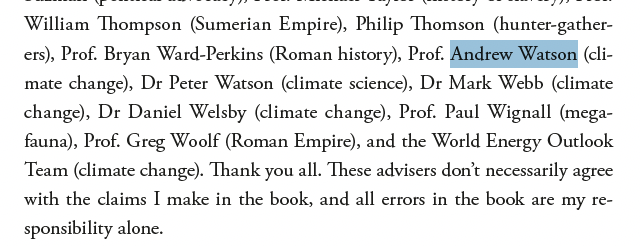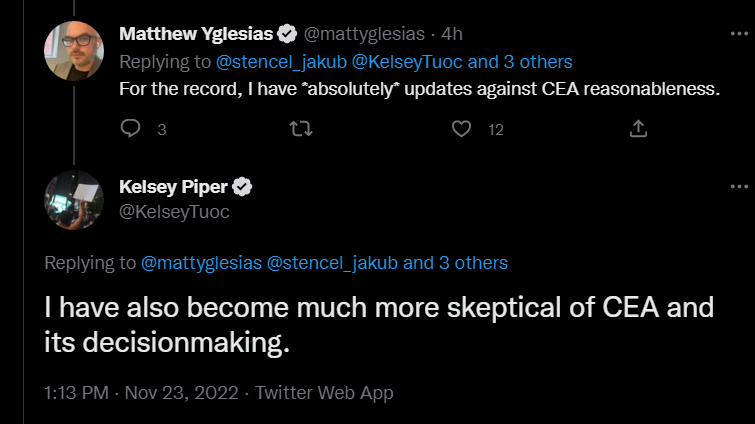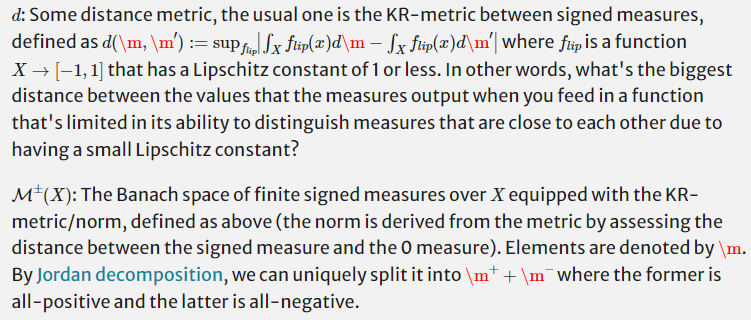Tldr: This is a letter I wrote to the Climate Contributing Editor of the Bulletin Atomic Scientists, Dawn Stover, about Emile Torres' latest piece criticising EA. In short:
- In advance of the publication of the article, Ms Stover reached out to us to check on what Torres calls their most "disturbing" claim viz. that Will MacAskill lied about getting advice from five climate experts.
- We showed them that this was false.
- The Bulletin published the claim anyway, and then tweeted it.
- In my opinion, this is outrageous, so I have asked them to issue a correction and an apology.
Update: The Bulletin has declined to correct the piece or issue an apology. They say that the editor's note provides 'balance' for the reader. They haven't explained how their false tweet remains acceptable. By these standards, media outlets don't have to correct false claims in articles, they just have to include editor's notes contradicting the false claims. There are apparently no constraints on what media outlets are permitted to tweet.
Dear Ms Stover,
I have long admired the work of the Bulletin of the Atomic Scientists. However, I am extremely disappointed by your publication of the latest piece by Emile Torres.
I knew long ago that Torres would publish a piece critical of What We Owe the Future, and on me following my report on climate change. However, I am surprised that the Bulletin has chosen to publish this particular piece in its current form. There are many things wrong with the piece, but the most important is that it accuses Will MacAskill and his research assistants of research misconduct. Specifically, Torres contends that five of the climate experts we listed in the acknowledgements for the book were not actually consulted.
Ms Stover: you contacted us about this claim in advance of the article’s publication, and we informed you that it was not true. Overall, we consulted around 106 experts in the research process for What We Owe The Future. Torres suggests that five experts were never consulted at all, but this is not true — as Will stated in his earlier email to you, four of those five experts were consulted. I am happy to provide evidence for this. The article would have readers think that we made up the citations out of thin air. One of them was contacted but didn’t have time to give feedback, and was incorrectly credited in the acknowledgements, which we will change in future editions: this was an honest mistake. The Bulletin also went on to tweet the false claim that multiple people hadn’t been consulted at all.
The acknowledgements are also clear that we are not claiming that those listed checked and agreed with every claim in the book. Immediately after the acknowledgements of subject-matter experts, Will writes: “These advisers don’t necessarily agree with the claims I make in the book, and all errors in the book are my responsibility alone.”
To accuse someone of research misconduct is a very serious allegation. After you check it and find out that it is false, it is extremely poor form to let the claim go out anyway and then to tweet it. The Bulletin should issue a correction to the article, and to the false claim they put out in a tweet.
I also have concerns about the nature of Torres’ background work for article — they seemingly sent every person that was acknowledged for the book a misleading email, telling them that we lied in the acknowledgements, and making some reviewers quite uncomfortable.
To reiterate, I am very disappointed by the journalistic standards demonstrated in this article. I will be publishing something separately about Torres’ (as usual) misrepresented substantive claims, but the most serious allegation of research misconduct needs to be retracted and we need an apology.
(Also, a more minor point: it's not true that I am Head of Applied Research at Founders Pledge. I left that role in 2019.)
John





These all are in the same reference class in my mind, so I don't really know what you are referring to. Of these "sociopath" is the shortest, though relatedly also the lossiest (like, it sure is a frequently misused concept, but also, my guess is its vaguely mapping to something real in the world, despite me despising like 90% of the times that it is used).
For example, let's assume that (I do not have strong evidence for it, but it seems at least vaguely plausible to me) that Torres suffers from psychotic episodes. By observing their behavior over the course of a few years, and e.g. seeing whether they have used anti-psychotic medication in the past, I come to the conclusion that it's the case that there are some periods in which interfacing with Torres will reliably go bad, and in which their behavior will be erratic, and some other periods in which they will probably be pretty sane.
This seems really helpful to me! If I am now engaging with Torres online or in-person, I might find myself having a surprisingly good and calm conversation, but if the person often has psychotic episodes, then we should expect the behavior during the good times to generalize less well to their behavior during bad times.
Again, this is all a hypothetical, I don't think I have much of any evidence to suggest that Torres has psychotic episodes, but I do think that considering the hypothesis and thinking about it can pay off pretty well.
As another concrete example, there were 2-3 commenters over the years on LW whose behavior was best explained by realizing that they are bipolar, and when they were in a manic episode, they would write very differently and engage very differently than if they were in a depressive episode (or in no episode at all). One thing that actually helped a good amount in two of those cases was sending a message being like "Hey, btw, I think you are having a manic episode (I saw on your blog that you said you were bipolar). I would suggest maybe taking a step back from commenting until you are in a better place", and that (surprisingly) actually went quite well, and I think prevented the person causing a decent amount of self-harm.